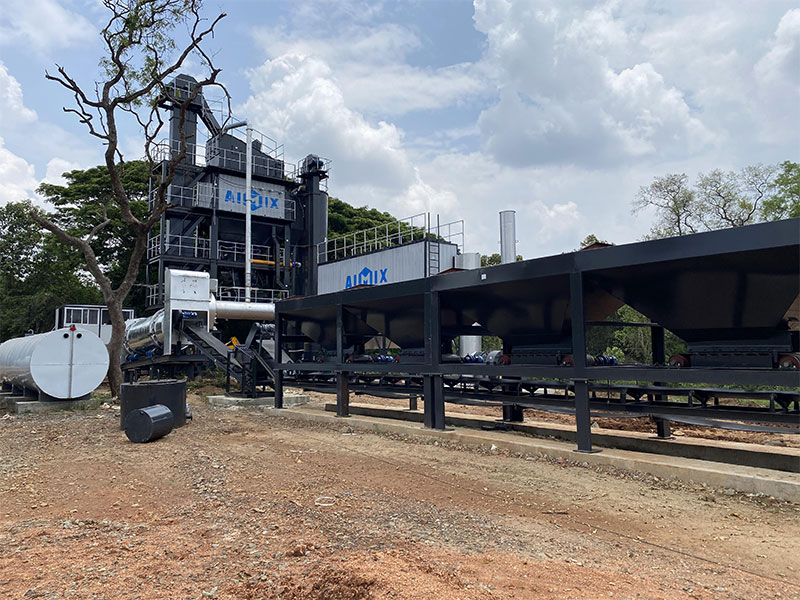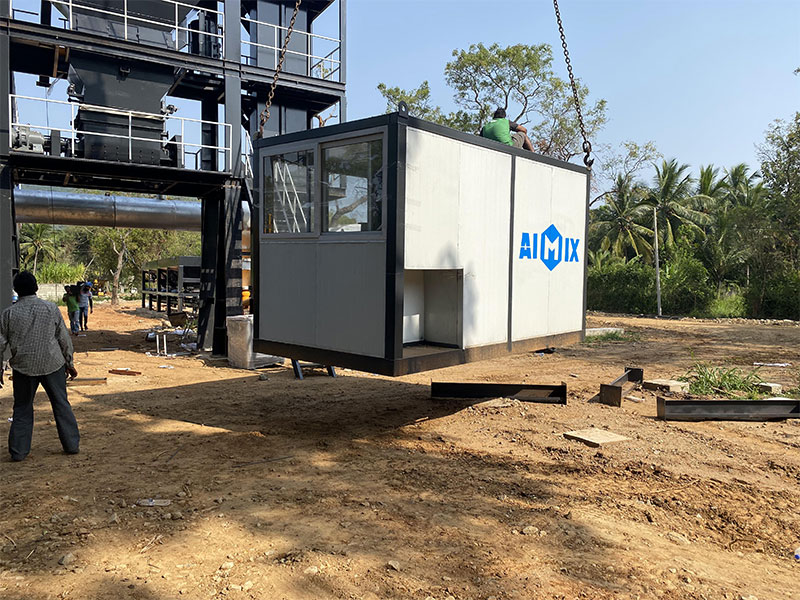Investing in an asphalt mixing plant can be a significant step forward for construction companies looking to improve the efficiency and control of their asphalt production process. These plants provide the capability to produce high-quality asphalt in-house, reducing reliance on external suppliers and enhancing overall project management. However, determining the optimal workforce needed to operate and maintain an asphalt mixing plant is a crucial consideration to ensure seamless production and maximize return on investment. In this article, we will delve into the various factors that influence workforce requirements for asphalt mixing plants and provide insights into how construction companies can optimize their workforce to achieve successful outcomes.
Understanding the Plant’s Capacity and Automation Level
The first step in determining the required workforce for an aspal mixing plant mini is understanding its production capacity and level of automation. Modern asphalt plants come in various sizes and configurations, ranging from small batch plants to large continuous plants. The capacity of the plant will dictate the volume of asphalt it can produce in a given time frame. Additionally, the level of automation, including computerized controls and monitoring systems, will impact the need for manual labor during the production process.
Higher-capacity plants with advanced automation generally require fewer operators as most tasks are automated and can be managed through a centralized control system. On the other hand, smaller plants or those with limited automation might require more manual labor to handle various aspects of the mixing process.

Essential Roles and Responsibilities
An asphalt mixing plant typically requires a diverse team with specific roles and responsibilities to ensure its smooth operation. The core workforce includes:
a. Plant Operators: Responsible for overseeing the operation of the plant, monitoring the mixing process, and adjusting settings as needed.
b. Plant Managers/Supervisors: In charge of overall plant management, maintenance planning, and coordinating with other departments.
c. Quality Control Technicians: Ensuring that the produced asphalt meets the required specifications and quality standards.
d. Maintenance Technicians: Responsible for the upkeep and repair of the plant’s machinery and equipment.
e. Loaders and Truck Drivers: Handling the transportation of raw materials and finished asphalt to and from the plant.
The number of workers required for each role will depend on the plant’s size, production capacity, proses produksi asphalt mixing plant, and the complexity of the operation.

Operating Hours and Production Schedule
The operating hours and production schedule of the asphalt mixing plant directly impact workforce requirements. If the plant operates on a 24/7 basis to meet high demand or tight project deadlines, it will need shift workers to ensure continuous production. In contrast, plants with more flexible schedules might have fewer workers on-site at any given time.
Additionally, the seasonal nature of asphalt demand in some regions may influence the need for temporary workers during peak production periods.
Training and Skill Levels
The competency and skill levels of the plant’s workforce are vital for efficient and safe operations. Properly trained and experienced workers can handle the plant’s machinery effectively, troubleshoot issues, and adhere to safety protocols.
Investing in training programs and certifications for the workforce can enhance productivity, minimize downtime, and reduce the risk of accidents. Skilled workers can also adapt to changing production requirements, ensuring the plant operates at its full potential.
Safety and Regulatory Compliance
Workplace safety is a top priority for any industry, and asphalt mixing plants are no exception. Ensuring compliance with safety regulations and providing a safe working environment is crucial for the perusahaan asphalt mixing plant to safeguard the well-being of the plant’s workforce.
Having dedicated safety personnel and implementing comprehensive safety protocols will not only protect workers but also prevent disruptions due to accidents or injuries.
Conclusion
The number of workers required to operate an asphalt mixing plant depends on various factors, including the plant’s capacity, harga asphalt mixing plant mobile, level of automation, production schedule, workforce skills, and safety requirements. An adequately staffed and well-trained team is essential to maximizing the plant’s productivity, ensuring the quality of the produced asphalt, and maintaining a safe working environment.
By conducting a thorough assessment of these factors, construction companies can optimize their workforce requirements, achieve efficient asphalt production, and ultimately enhance their competitiveness in the dynamic construction industry. Investing in a skilled and dedicated workforce will prove to be a crucial factor in the success of the asphalt mixing plant and the overall growth of the company.
